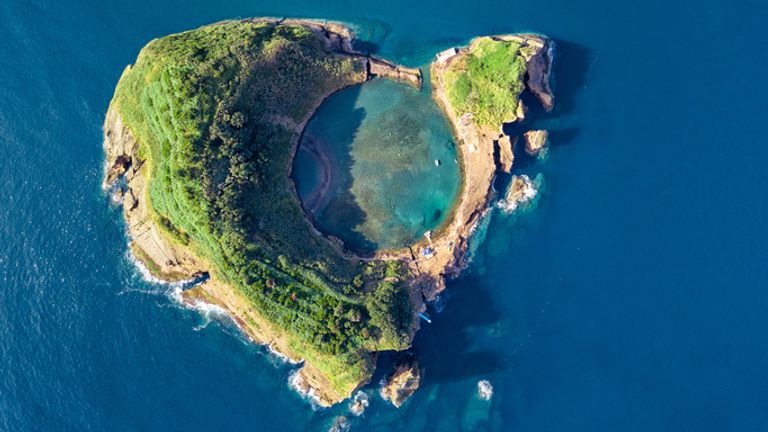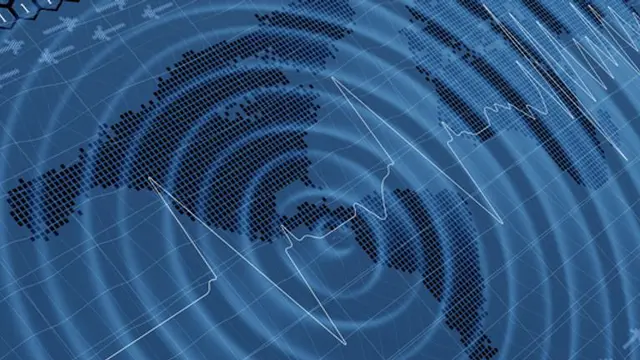Fifty measuring devices are to be dropped on the floor of the Atlantic Ocean in an attempt to measure the Earth's "pulse".
They will detect vibrations caused by seismic waves and continuously record motions hundreds of kilometres deep within the planet.
The seismometers will be positioned across an area that includes the Canary Islands, Madeira and the Azores - and use a technique previously used to study galaxies.
Experts say it will leave a "tremendous legacy" and aid research on earthquakes and volcanic tremors, as well as helping track whales from the sounds they make.
University College London (UCL) is leading the project - called UPFLOW (Upward mantle flow from novel seismic observations) - which aims to understand more about large upwellings of material from the Earth's mantle.
This occur far from the boundaries of continental plates and cannot be explained by the theory of plate tectonics.

Image:The volcanic islet in Franca do Campo in the Azores - some of the devices will be placed near the Portuguese archipelago
"This is a first of a kind seismic experiment," said Professor Ana Ferreira of UCL Earth Sciences.
"It is the first time we have covered such a large region of the North Atlantic ocean with these highly sensitive instruments.
"By analysing their data, we hope to better understand the massive motions occurring hundreds of kilometres deep in the Earth's mantle - in particular, upward flows of material that we still do not understand very well.
"These motions are what ultimately cause volcanic eruptions and can also lead to earthquakes."
The seismic image method that will be used was previously employed by astrophysicists to study far-away galaxies.
"The existence of the Canary Islands and the volcanic islands in Madeira and the Azores are a result of massive motions deep under the Earth's surface," said Professor Jorge Miguel Alberto de Miranda, from Portugal's Institute for Sea and Atmosphere.
"Our research will aim to uncover if there is a link in how these islands formed."
The seismometers will be dropped by boat over the next five weeks, anchoring themselves to the sea bed, before being collected a year later.
Schoolchildren in Portugal, Germany, Ireland and Spain have named some of the devices - with titles including Triton, Neptune, Thor, Caesar and Jelly.
 简体中文
简体中文

